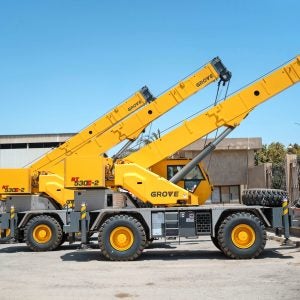State labour commissioner Cherie Berry, and NCDoL officials, met with industry leaders last week to discuss the plans. A department of labour spokesman said that the department has consulted with local crane and construction companies, including Arcadis, Balfour Beatty Construction, BE&K, Buckner Companies, Cox & Schepp, Edifice, Heede Southeast, and Skanska.
After the meeting, Berry said, “It is unfortunate that a new national crane safety standard has not been implemented yet. I have proposed adopting this standard to protect the health and safety of North Carolina’s crane operators and construction workers—as well as the public.”
The draft standard will include eight key provisions. According to a release issued by the department, these are:
- Expanding the scope of the standard to include the wide range of new types of cranes that have been developed during the past 30 years;
- Having a qualified person to address key hazards associated with crane assembly and disassembly;
- Making sure ground conditions are adequate for set-up to help prevent tip-overs.
- Requiring employers to take specific precautions when cranes are near power lines;
- Instituting a certification requirement for crane operators, either through a nationally recognised accrediting agency or through an employer’s own qualification program, which must be approved by a recognised auditor;
- Requiring signal persons to meet specified qualifications;
- Updating requirements for cranes on barges; and
- Updating requirements for safety devices, operational aids, signals, specific types of equipment, inspections, wire rope, crushing and overhead hazards, fall protection, and equipment modification.
The draft standard will be published in the North Carolina Register, on December 15. Under North Carolina’s Administrative Code, the department of labour can enact standards like this directly, without new legislation. There will be a sixty day public comment period, after the proposal is published. If the agency does not make substantial changes in response to this consultation, and if the standard is approved by the state rules review commission, the standard could come into effect as soon as 1 April 2009.






